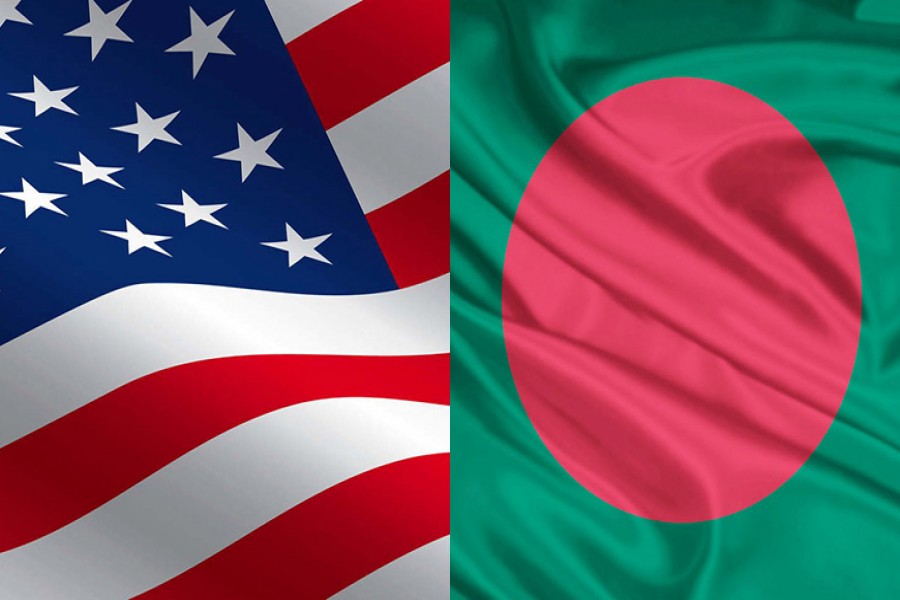The United States is giving a serious look at Bangladesh to expand its trade and investment ties with a special focus on oil, gas and energy sector as Bangladesh offers huge potentials in this area, says a US official.
The US companies, however, find some issues of concerns, including business registration, regulations and infrastructure that they hope the government will address.
"Right now, the biggest sector is oil, gas and energy. This is going to be very important for US companies. US companies have lot of experience," the US Embassy official in Dhaka told UNB mentioning that they view Bangladesh as a huge market.
Wishing to remain unnamed, the official said he knows many companies in the US which are interested in helping Bangladesh develop its energy generation gap.
Explaining US's interest to expand trade and investment ties, he said there are huge opportunities in Bangladesh having 160 million people with a growing middle class, and the government of Bangladesh is making lots of efforts to improve infrastructure and other required facilities.
"We care about Bangladesh. From US companies' perspective, Bangladesh is a huge potential market. But it's not easy. You need to have patience when you look at Bangladesh," the US official said while sharing the concerns of US companies.
He said the airport infrastructure is not in that shape what they find in other places and sometimes it takes longer time than usual in terms of business approval.
"We've seen progress in streamlining approval for business that will be helpful. Anything that goes towards streamlining processes whether it is customs or business registration - we say improvement is critical," said another official who is dealing with trade issues.
Responding to a question on market diversification, the US official said there is a market for Bangladeshi products in the US market if Bangladesh produces products efficiently and export those to the US market timely.
The US officials think Bangladesh's pharmaceuticals have made a lot of progress and information technology services are "really potential".
India, according to officials, is now a hub for IT services and some of the services are becoming more expensive, and Bangladesh could take advantage of it to produce those services in Bangladesh and export to the global market, including the US one.
Referring to the US-Bangladesh Trade and Investment Cooperation Forum Agreement (TICFA) meeting held in Dhaka earlier, a Commerce Ministry official here said the two governments pledged to deepen their engagement and increase their trade and economic ties.
The US particularly noted its interest in addressing specific market access barriers to trade and concerns on overall labour reform.
Bangladesh and the United States had $6.8 billion (two-way) goods trade during 2016, according to the Commerce Ministry here.
On restoration of GSP benefit for Bangladesh, the US official said Bangladesh did not petition to reinstate the Generalised System of Preferences (GSP), most likely after 2015 which remained suspended for long.
"There was no specific Bangladesh petition," the official said appreciating Bangladesh's progress made so far in line with 16-point GSP action plan.
The US, however, thinks reforming Bangladesh Labour Law, EPZ Labour Law will represent "real progress". "We still have issues with Bangladesh Labour Law, freedom of association and union registration. Not just reform, they have to be international standard and this standard is determined by the ILO."
The official said the reforms that the government of Bangladesh is exploring now with regards to Bangladesh labour law and EPZ Labour law, and "if these are implemented that will be a real credible progress."


